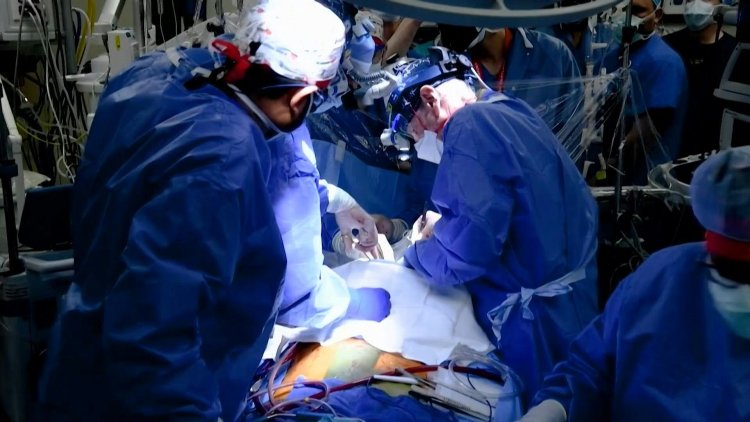'Historic': US surgeons successfully implant pig heart in human

US surgeons have successfully implanted a heart from a genetically modified pig in a 57-year-old man, a medical first that could one day help solve the chronic shortage of organ donations.
The "historic" procedure took place Friday, the University of Maryland Medical School said in a statement on Monday. While the patient's prognosis is far from certain, it represents a major milestone for animal to human transplantation.
The patient, David Bennett, had been deemed ineligible for human transplant -- a decision that is often taken when the recipient has very poor underlying health.
He is now recovering and being carefully monitored to determine how the new organ performs.
"It was either die or do this transplant. I want to live. I know it's a shot in the dark, but it's my last choice," the Maryland resident said a day before the surgery.
Bennett, who has spent the last several months bedridden on a heart-lung bypass machine, added: "I look forward to getting out of bed after I recover."
The Food and Drug Administration granted emergency authorization for the surgery on New Year's Eve, as a last ditch effort for a patient who was unsuitable for conventional transplant.
"This was a breakthrough surgery and brings us one step closer to solving the organ shortage crisis," said Bartley Griffith, who surgically transplanted the pig heart.
"We are proceeding cautiously, but we are also optimistic that this first-in-the-world surgery will provide an important new option for patients in the future."















